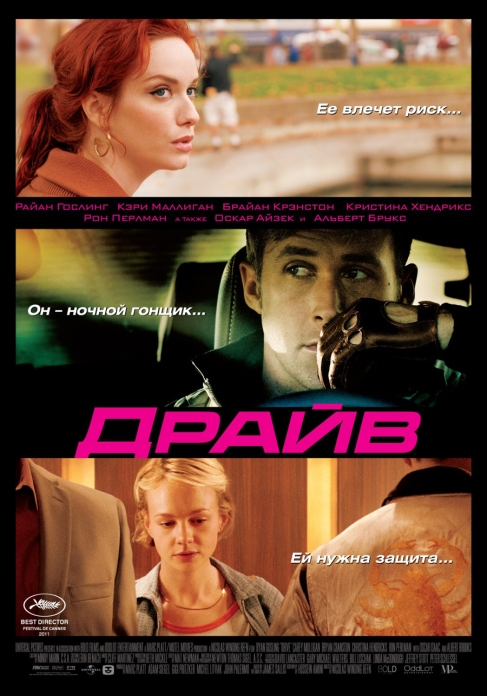Directed Nicolas Winding Refn. 100 mins.
Worth my time? Yes. (Watched on DVD)
Drive was my second-favorite film of 2011 (The Tree of Life took the top spot), and it will always have a special place in the chamber of my heart that stores movie memories. I first saw it at the North American premiere as part of the 2011 Los Angeles Film Festival, and it blew me away. I’ve seen it twice more in theaters and at least three times on home video. Consider me a fan.
I provide this preface to give folks a heads-up of my potential bias. I won’t be reviewing Drive so much as I will be gushing over it. However, I’ll try my best to justify my imminent gush (eew).
Perhaps the greatest achievement of Nic Refn’s breakthrough feature is its masterful use of contrast in all aspects of the film. Its setting is Los Angeles, the movie capital of the world (or at least until China catches up), but the action takes place in areas most LA films ignore. Instead of Hollywood and Beverly Hills, you see Reseda and Northridge. Instead of Griffith Park, you see MacArthur Park bordering Filipinotown. The downtown scenes are missing film favorites such as the Bradbury building of Blade Runner notoriety. Even when the Driver escapes to the Staples Center, he does so at the end of a Clippers game. These location choices help emphasize the point that while these characters are living in the same City of Angels we know from the pictures, their lives are far from the glossy ideal.
Speaking of gloss, the movie sports neon lighting that would impress a whole roomful of Michael Manns. The darkness in Drive reveals its brightest scenery (in a critical scene that takes place in a fully lit elevator, the lights mysteriously go dark. I won’t be surprised if that scene is referenced in many future films). The film uses violence sparingly, but the sequences are Peckinpah-brutal and, interestingly enough, usually happen in the daytime.
All of the actors do a great job with Standard (played by Oscar Isaac whom I’m glad to see ascending the showbiz ranks) being a particular stand-out. One could argue that Ryan Gosling is on autopilot, but I thought that his silence and facial reactions revealed plenty about the character. When the Driver does speak, however, he makes the words count. Albert Brooks delivers arguably the best performance of his career, and no, I don’t want to get into a debate about Defending Your Life or Broadcast News. His inexplicably absent eyebrows make the already frightening Bernie Rose a near-perfect villain.
The beauty of Drive’s story is that the Driver and Bernie are very similar characters whose placements on the moral spectrum are mainly a product of bad luck. Both of them have implicitly sordid pasts and return to their old ways to resolve their friends’ fuck-ups. The Driver and Bernie are logical people who would rather avoid conflict, but they both easily revert to being ruthless killers when they see no other choice. Like the scorpion crossing a river on the frog’s back, it’s in their nature.
Aside: The soundtrack (which includes Kavinsky, Desire, Chromatics, etc) and the score by Cliff Martinez are exactly right for the film.
Aside: Obviously Drive owes a debt to many films that influenced its style (particularly Walter Hill’s The Driver), but its direction is so confident that it never feels derivative.
(Seen and written on 2013-10-11)


